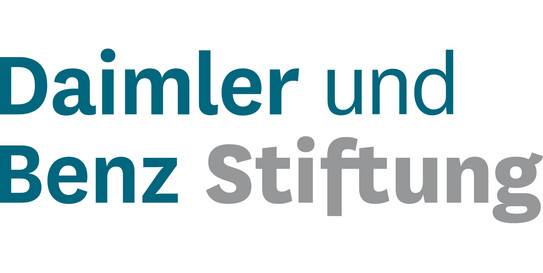KonCheck
Prof. Dr. Jürgen Howaldt | Prof. Dr. Johannes Weyer | Fabian Adelt | Sebastian Hoffmann | Aaron Zilt | Research field Sociology of Technology
In KonCheck, a tool is being developed that can contextualize and check politically relevant information on the Internet, thereby promoting the democratic participation of vulnerable groups in particular. The technical development of the tool is framed by a broad social and communication science program, which aims to identify target group-specific needs and challenges, promote acceptance and examine the effects of using the tool.

Daimler and Benz Foundation
One of the foundations of a democratic society is the formation of (public) political opinion, whereby it can be assumed that it has undergone major changes in recent years in line with its digital transformation. An increasingly fragmented public sphere can be observed, which is probably characterized by a new intensity of (dis)integration. The resulting diversity of actors, media, filter bubbles and echo chamber effects as well as the increasing fragmentation of the political party landscape are leading to confusion and polarization. This poses a challenge for active and positive participation as well as the informed formation of citizens' political opinions.
The fragmentation into different providers, such as social media, influencers, traditional journalism and instant messaging services, leads to different types of digital presentation. In many cases, information is presented without context and without citing the source, leaving citizens without the opportunity to contextualize and verify this information. There is a risk that democratic processes such as the formation of political opinion and free elections will be impaired by the deliberate manipulation and misrepresentation of information, distorted reporting with a one-sided or politically colored focus and the dissemination of fake news, AI-generated texts, images and videos.
This is where KonCheck comes in, identifying two aspects that make political participation possible in the first place:
1. Contextualizing politically relevant information, i.e. being able to classify and evaluate it as soon as it is received;
2. Checking politically relevant information, analyzing its trustworthiness and recognizing AI-generated false information (image, video, sound and text).
Thus, a tool will be implemented which is intended to address vulnerable groups for digital participation in particular, such as people with cognitive impairments, senior citizens and young voters, whose needs and challenges will be analyzed in the social and communication science framework of the project. KonCheck follows the ‘universal’ or ‘inclusive design’, whereby the researched approaches should be generalizable to as many recipients as possible. The aim is to make a significant contribution to strengthening democratic and participatory opinion-forming on the internet.
Prof. Dr. Jens Gerken, TU Dortmund University, Inclusive Human-Robot Interaction (Coordination)
Prof. Dr. Jürgen Howaldt, Prof. Dr. Johannes Weyer, TU Dortmund University, Social Research Center Dortmund
Prof. Dr. Matthias Hastall, TU Dortmund University, communication for health, inclusion, and participation
Prof. Dr. Tobias Urban, Prof. Dr. (TU NN) Norbert Pohlmann, Westfälische Hochschule, Institut für Internetsicherheit
Prof. Dr. Matteo Große-Kampmann, Rhine-Waal University of Applied Sciences, Distributed Systems
Prof. Dr. Thorsten Holz, CISPA Helmholtz Center for Information Security, Saarbrücken, Threat Detection & Defenses
KonCheck follows a mixed-methods approach and the classic principles of technology assessment:
1. Target group specific needs analysis: the aim here is to identify target group specific needs and challenges in the consumption of information and the formation of political opinion (qualitative surveys, observational studies).
2. Topic selection and communicative framework: The election topics for the 2025 federal election as well as the underlying, controversially discussed basic assumptions, associations and implications as well as relevant distortions (in particular confirmation bias) are determined (including quantitative social media content analysis).
3. Technological conception and development of the KonCheck tool: In this step, the technologies required to achieve the project objectives are designed and developed. Various software-based tools in the form of a mobile application and a browser extension are developed for this purpose. The technologies required to contextualize information and to check the trustworthiness and verifiability of content are researched and integrated into the tools.
4. Participatory design of visualization and interaction: In this step, a concept for visualization and interaction for the KonCheck tool will be developed in a participatory manner, implemented as a proof-of-concept and evaluated in initial user studies.
5. Empirical testing of effectiveness: Finally, the anticipated effects of the developed tool on the relevant dependent variables are empirically tested (including a quantitative long-term study).
1. Depolarize users' decision-making processes and reduce confirmation biases (improvement of decision-making processes)
2. Make citizens less dependent on individual political opinion makers and strengthen their resilience to manipulation (empowerment and self-determination)
3. Promote social justice through political participation by focusing specifically on vulnerable groups
4. Promote differentiated political opinion-forming overall and thus increase the ability to participate in elections and other democratic processes and mechanisms (strengthening democracy)




![[Translate to English:] [Translate to English:]](/storages/zentraler_bilderpool/_processed_/a/f/csm_Kontakt_b86e8d8ecc.png)
![[Translate to English:] [Translate to English:]](/storages/sfs-sowi/_processed_/6/c/csm_Glasfront_sfs_Header_eae6d325d3.jpg)
